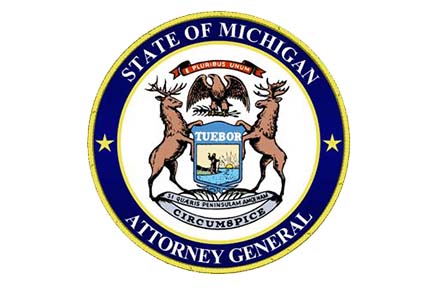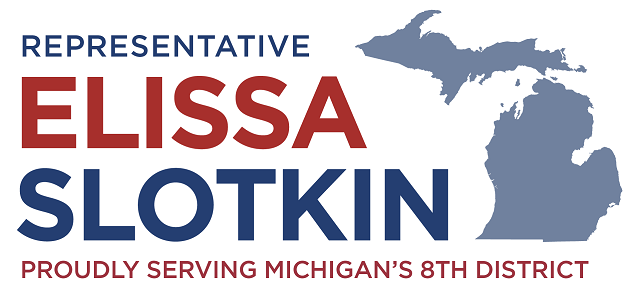
Nessel Issues Statement on Victory in “Adopt and Amend”
|
|
|
|

|
|
|
|


Press Release FOR IMMEDIATE RELEASE: July 20, 2022 CONTACT: Bob Wheaton, 517-241-2112, WheatonB@ Temporary Assistance for Needy Families State Plan available LANSING, Mich. – The Michigan Department of Health and Human Services (MDHHS) is accepting public comment on its plan for spending Temporary Assistance for Needy Families funding from the federal government. The Temporary Assistance for Needy Families (TANF) State Plan can be viewed on the MDHHS website. The plan is effective Jan. 1, 2023. The public can submit comment by email to [email protected] through Sept. 5, 2022. TANF is a federal program run by states that assists families who are unable to provide for their children’s basic needs. “TANF provides important funding from our federal partners as we work to support families who are struggling to pay for food, clothing and other necessities for their children,” said Lewis Roubal, MDHHS chief deputy director for opportunity. “TANF also helps parents find jobs. We welcome input from our residents about our plans for spending these federal dollars that come to Michigan.” The state plan describes programs and services paid for with TANF, including:
The plan is for the three years beginning in 2023. Michigan received $772.8 million from TANF for fiscal year 2022, with $528.1 million appropriated to MDHHS. To be eligible for TANF, applicants must be low-income and have a child 18 or younger, or be pregnant, or be younger than 18 while also being the head of the household. |

 |
| Hi there,
Earlier this month I brought my House Subcommittee on Intelligence and Counterterrorism, which I chair, to Michigan for a field hearing focused on how local officials, school administrators, business owners, and families can protect themselves against cyber attacks. I wanted to do this because since my very first day in office, local leaders have been telling me stories about how their offices have been hit by ransomware attacks. In layman’s terms, ransomware is malicious software designed to deny a user or organization access to files on their computer. By encrypting these files and demanding payment to “unlock” the system, cyberattackers place organizations in a position where paying the ransom is the easiest and cheapest way to regain access to their files. And these attacks have become extremely frequent. There’s the township supervisor who told me his network was hacked three times in one year. And the local power company that paid $25,000 in ransom to the cybercriminals who locked their internal communication system, along with another $2.4 million responding to the attack. Or the room full of superintendents who ALL raised their hands when I asked whose school data had been hacked. And did you know that hackers target the state of Michigan’s servers more than 90 million times a day? Those are just some of the issues we highlighted in the field hearing, which featured testimony from the Michigan State Police, the Cybersecurity and Infrastructure Security Agency (CISA), and the U.S. Department of Homeland Security (DHS). But as new as those threats are, there are resources and experts that can help. If you are a local leader of a town, school, church, community group, or other organization and you find yourself locked out of your files or computer systems, here’s what you should do:
But I don’t want you to wait until an attacker strikes to start taking action. There are steps you can take right now to protect yourself and you/your organization’s data:
Here’s the bottom line: whether you’re in charge of a multi-million dollar organization or just checking your personal email, it’s time to step up your “cyber hygiene” routine. Cybercrime is modern warfare, and because of our reliance on the Internet, we’re all on the frontlines of this fight. So let’s arm ourselves with information and stay vigilant! – Rep. Elissa Slotkin |

|
|
|
|
|

FOR IMMEDIATE RELEASE
July 19, 2022
Contact: [email protected]
Governor Whitmer Signs Legislation Renaming Highways in Recognition of Fallen Military & Police Officers Killed in the Line of Duty
LANSING, Mich. — Today, Governor Whitmer signed four bills renaming portions of highways to recognize fallen military officers and police officers. This brings the total number of bipartisan bills signed to 904.
“These bipartisan bills honor the memories of Michigan service members and law enforcement officers who lost their lives in the line of duty,” said Governor Whitmer. “We are grateful for their service and proud to recognize them by renaming portions of Michigan’s highways in their namesake. We must ensure that their legacies live on not only in our words, but through our actions. Let’s keep working together to protect public safety and support our troops, law enforcement officials, and veterans.”
Corporal DeAngelo Snow Memorial Highway
House Bill 5472 will designate a portion of I-75 as the “Corporal DeAngelo Snow Memorial Highway”. Army Specialist DeAngelo Snow served in the 526th Brigade Support Battalion, 2nd Brigade Combat Team, 101st Airborne Division. On September 17, 2010, he died at age 22 from an insurgent attack in Afghanistan. He received the Bronze Star and Purple Heart for his bravery and service.
“On September 17th, 2010, Specialist DeAngelo Snow laid down his life in Afghanistan, in service to his Nation,” said VFW State Junior Vice Commander Kimberly Napoleon. “This recognition does not bring DeAngelo back to his family, but it ensures his name, and his sacrifice is never forgotten.”
“Special thanks to Governor Whitmer for signing my bill to help honor one of Buena Vista Township’s finest, Mr. DeAngelo Snow,” said Rep. Amos O’Neal, D – Saginaw. “He fell in the line of duty at such a young age and was a special individual that our community will never forget.”
House Bill 5472 was sponsored by Rep. Amos O’Neal, D – Saginaw, and a copy can be found here.
Sergeant Craig S. Frank Memorial Highway
House Bill 5712 will designate a portion of M-85 as the “Sergeant Craig S. Frank Memorial Highway”. Army Specialist Craig S. Frank served in the 1775th Military Police Company, Michigan Army National Guard. On July 17, 2004, he was killed in Iraq when a rocket-propelled grenade struck his car.
“On July 17, 2004, Lincoln Park and Downriver lost Michigan National Guard Sgt. Craig S. Frank, who was killed in action while providing armed protection for an American military convoy traveling north of Baghdad, Iraq,” said Representative Cara Clemente, D-Lincoln Park. “Lincoln Park and Downriver still remembers Sergeant Frank’s legacy; one in which he bravely sought to uphold the freedoms, and security that we so often take for granted. It is only right and fitting that Governor Gretchen Whitmer will be signing into law my legislation, which will rename part of Fort Street (M – 85) in Lincoln Park as the Sergeant Craig S. Frank Memorial Highway. May this recognition of his service and bravery continue to live on for posterity.”
House Bill 5712 was sponsored by Rep. Cara Clemente, D-Lincoln Park, and a copy can be found here.
Sergeant Ryan J. Proxmire Memorial Highway
House Bill 5720 will designate a portion of US-131 as the “Sergeant Ryan J. Proxmire Memorial Highway.” Kalamazoo County Sheriff Sergeant Ryan Proxmire was killed in the line of duty on August 14, 2021, during a high-speed chase.
“The Proxmire Family is deeply humbled, honored, and grateful in learning of the passing of the bill to erect the memorial sign for our Fallen Hero, Sergeant Deputy Ryan J. Proxmire,” said Roanna Proxmire. “Ryan always made it a point to look up the names on those signs in our travels. Their lives matter and are remembered, and now his name on this sign will serve as a reminder of his dedication to his job and community, his belief in justice, and his sacrifice will never be forgotten.”
“The women and men of the Kalamazoo County Sheriff’s Office and the community are happy to see this memorial taking place as we are coming up on the one-year anniversary of Sergeant Proxmire’s end of watch,” said Kalamazoo County Sheriff Richard Fuller. “This will go a long way in helping the community understand the importance of the women and men serving their communities in the emergency services and remembering them for their sacrifices.”
“Sergeant Proxmire’s longstanding history of service to the Kalamazoo community is one of many reasons his memory is more than deserving of the “Sergeant Ryan J. Proxmire Memorial Highway,” said Representative Julie Rogers, D – Kalamazoo. “While nothing can ever truly express our grief and gratitude, we will honor his life for years to come by establishing this memorial highway in his name. He was a hero, and this dedication will help others learn about the sacrifice he made while protecting our community.”
“The MSA is thankful that Ryan Proxmire’s name will live on in memoriam giving him a lasting legacy as a means of recognizing his valiant efforts to protect his community and as a way of compensating for his life being stolen well before it’s time,” Matthew Saxton, CEO/Executive Director, Michigan Sheriffs’ Association. “We must never forget those men and women that have paid the ultimate sacrifice in order to keep the rest of us safe.”
House Bill 5720 was sponsored by Rep. Julie Rogers, D-Kalamazoo, and a copy can be found here.
Officer Jessica Nagle-Wilson Memorial Highway
House Bill 6079 will designate a portion of I-75 as the “Officer Jessica Nagle-Wilson Memorial Highway”. Hazel Park Police Officer Jessica Nagle-Wilson was killed in the line of duty on July 28, 2002, when she was shot responding to an animal complaint. Officer Nagle-Wilson had served for just under two years.
“Officer Jessica Nagle-Wilson tragically lost her life in the line of duty serving the City of Hazel Park,” said Rep. Regina Weiss, D-Oak Park. “July 28, 2022, marks the twentieth anniversary of her death, and with the official designation of the Jessica Nagle-Wilson Memorial Highway, her memory is honored and will live on. I hope that this memorial highway brings a small bit of comfort to Jessica’s family, friends, and the entire Hazel Park community.”
“On behalf of the City of Hazel Park, Hazel Park Police we want to thank representative Weiss for bringing this Bill forward,” said Brian Buchholz, Chief of Police, Hazel Park Police Department. “We want to thank the Legislature and Governor for making the Jessica Nagle-Wilson Memorial Highway a reality. Jessica made the ultimate sacrifice for this city and other officers 20 years ago this month. Jessica’s family never want her heroics to be forgotten and this will ensure that her sacrifice is remembered. Those traveling through this great state will learn of her great sacrifice and those that continue to work will be proud that Jessica is honored in this way.”
House Bill 6079 was sponsored by Rep. Regina Weiss, D-Oak Park, and a copy can be found here.